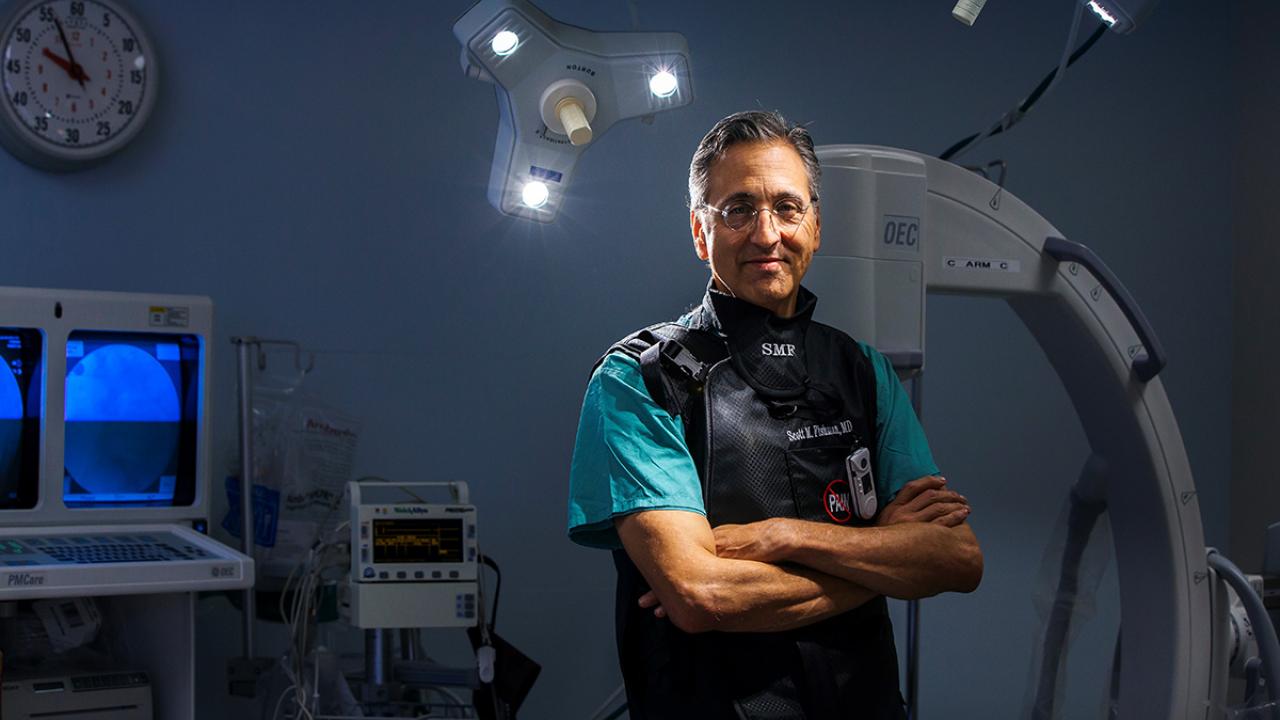
Transforming Pain Care, Maximizing Quality of Life
By Trevor Stewart
Scott Fishman, M.D., UC Davis Health director for the Center for Advancing Pain Relief, has seen firsthand the pervasive pain problem plaguing the United States over the past several decades. Fishman’s proposed Big Idea would commission a UC Davis Pain Relief Center, which would serve as a hub for education, research and integrative care –– a groundbreaking resource for clinicians to rethink how to view pain relief and pain management.
Q: Why are you so passionate about the topic of pain relief?
A: I can’t imagine anybody going into the healthcare profession without being concerned about the pain and suffering of their patients. You see it reported in the media every day–– people getting inadequate to inappropriate pain management and being left with harmful conditions, like opioid addiction. The problem with the excessive use of opioids is that we never truly trained clinicians on how to understand and recognize pain, as well as how to treat it safely and effectively. There’s a huge educational gap here that we need to fill. I don’t think it’s extraordinary that I’m passionate about this, because I think most people would be if they recognized how fundamental of a problem this is in society.
Q: How does pain affect our current society?
A: Pain is very widespread in America. We spend more money on health care, yet we’re one of the least healthy societies. It’s estimated that about 100 million Americans have chronic pain and the cost associated with it calculates to around $600 billion. Pain is the most common reason a person goes to a healthcare practitioner. Yet, in many ways, we’ve ignored pain largely because of the fragmentation of our healthcare systems –– because we have had to reduce healthcare to its parts. When we do that, we lose that wholeness of a person that’s so important to pain relief and pain management.
Q: How will the Big Idea find new solutions to help manage pain?
A: When we look at someone in pain, we ask a few questions. The important ones are asking how the patients feels and their pain level –– but one standard question that is missing is asking them what activities they are unable to do because of their pain. We can’t cure everyone of their pain, but we can help almost everyone manage their pain better. What we quantify as “better” is often about regaining that quality of life, which pain has robbed from them. When you go to a doctor, you’re going to get what is covered under your health policy. So for the vast majority of people, what’s covered are medical treatments, drugs and interventions. Unfortunately, that’s not enough. Right now, UC Davis is exploring new, innovative methods of managing pain: a pilot program in hospitals to administer anti-opioid medication in emergency rooms, partnering with UC Davis Veterinary Medicine on facial recognition technology to study pain and changing the curriculum for medical students and practicing clinicians to focus more on safe and effective responses to pain. We are attempting to flip the disease model toward wellness as a priority for the entire university. Ultimately, we need a much broader picture of what health is –– and what pain relief is –– which is really the goal of this Big Idea.
Q: Why is UC Davis the place where this Big Idea and research is going to thrive?
A: This Big Idea would not have been possible without a history behind it. We’ve created a pain program that is now 20 years old. UC Davis is a university that sees itself as a leader, and this is an area where we have led in collaborative clinical care, research and teaching. So if you come to the UC Davis Health campus, my hope is that you will feel treated not as an individual with simply back pain or head pain, but as a person who’s suffering and has had consequences to that suffering. We want to look at a person through a truly holistic health lens, which is why we are collaborating with departments across campus in interdisciplinary research –– like our top-ranked Veterinary Medicine School –– to find the similarities in pain management between humans and animals. There’s no university in the world that is as prepared to address this societal issue as UC Davis; it’s what makes this Big Idea actually attainable.
Learn More About the Center For Advancing Pain Relief Big Idea.
